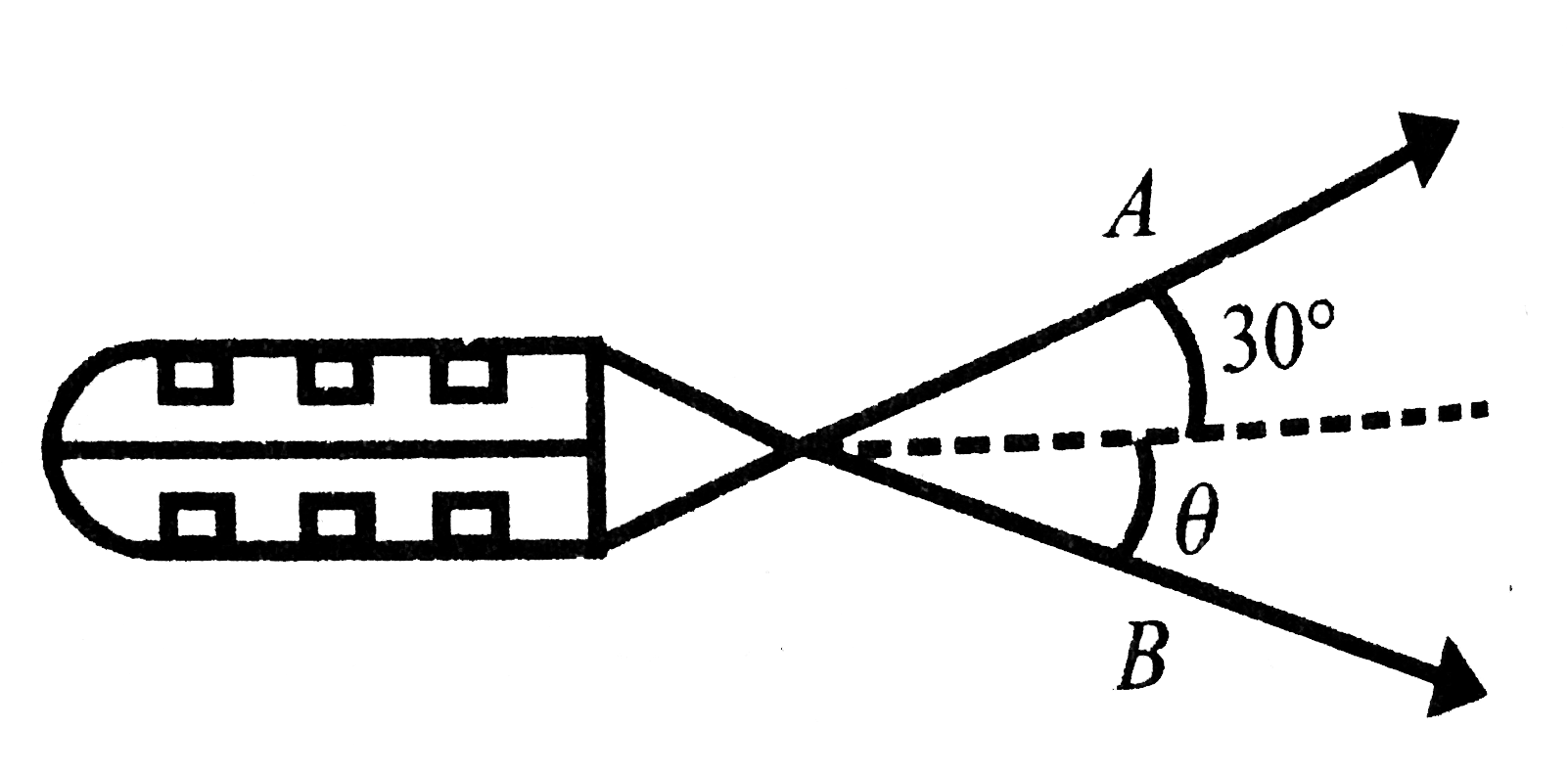A 8,000 kg engine pulls a train of 5 wagons, each of 2,000 kg along a horizontal track. If the engine exerts a force of 40,000 N and track offers a force of friction of 5,000 N, then calculate the :acceleration of the train.
To solve the problem, we need to calculate the total mass of the train, the net force acting on it, and then use Newton's second law of motion to find the acceleration.
1. Calculate the total mass of the train:
- The mass of the engine = 8000 kg
- The mass of each wagon = 2000 kg
- Number of wagons = 5
- Total mass of the wagons = 5 wagons × 2000 kg/wagon = 10,000 kg
- Total mass of the train = mass of the engine + total mass of the wagons
- Total mass of the train = 8000 kg + 10,000 kg = 18,000 kg
2. Calculate the net force acting on the train:
- Force exerted by the engine = 40,000 N
- Force of friction opposing the motion = 5,000 N
- Net force (F_net) = Force exerted by the engine - Force of friction
- F_net = 40,000 N - 5,000 N = 35,000 N
3. Use Newton's second law to calculate the acceleration:
- According to Newton's second law, F = m × a, where F is the net force, m is the mass, and a is the acceleration.
- Rearranging the formula to find acceleration: a = F_net / m
- a = 35,000 N / 18,000 kg
4. Calculate the acceleration:
- a = 35,000 / 18,000
- a ≈ 1.9444 m/s²
Final Answer:
The acceleration of the train is approximately 1.94 m/s².
---
- The mass of the engine = 8000 kg
- The mass of each wagon = 2000 kg
- Number of wagons = 5
- Total mass of the wagons = 5 wagons × 2000 kg/wagon = 10,000 kg
- Total mass of the train = mass of the engine + total mass of the wagons
- Total mass of the train = 8000 kg + 10,000 kg = 18,000 kg
- Force exerted by the engine = 40,000 N
- Force of friction opposing the motion = 5,000 N
- Net force (F_net) = Force exerted by the engine - Force of friction
- F_net = 40,000 N - 5,000 N = 35,000 N
- According to Newton's second law, F = m × a, where F is the net force, m is the mass, and a is the acceleration.
- Rearranging the formula to find acceleration: a = F_net / m
- a = 35,000 N / 18,000 kg
- a = 35,000 / 18,000
- a ≈ 1.9444 m/s²
The acceleration of the train is approximately 1.94 m/s².
Topper's Solved these Questions
Similar Questions
A 8,000 kg engine pulls a train of 5 wagons, each of 2,000 kg along a horizontal track. If the engine exerts a force of 40,000 N and track offers a force of friction of 5,000 N, then calculate the : net accelerating force.
View SolutionA 8000kg engine pulls a train of 5wagons, each of 2000kg, along a horizontal track. If the engine exerts a force of 40000N and the track offers a frictional force of 5000N, then calculate:
(a) the net accelerating force, (b) the acceleration of the train, and
(c ) the force of wagon 1 on wagon 2.
View Solution
Knowledge Check
A 8000kg engine pulls a train of 5wagons, each of 2000kg, along a horizontal track. If the engine exerts a force of 40000N and the track offers a frictional force of 5000N, then calculate:
(a) the net accelerating force, (b) the acceleration of the train, and
(c ) the force of wagon 1 on wagon 2.A50000 N, 2.0 m/s2, 15000 NB35000 N, 1.94 m/s^2, 15520 NC50000 N, 2.5 m/s^2, 9000 NDNONEA block of mass 10kg is placed on a rough horizontal surface having coefficient of friction μ=0.5 . If a horizontal force of 100N is acting on it, then acceleration of the will be.
A0.5m/s2B5m/s2C10m/s2D15m/s2Two ropes are puling a large ship at rest of mass 1×106kg into harbour. Rope A exerts a force of 40,000N and rope B exerts a force of 30,000N.

The time for the ship to travel 6m to the the dock isA1min30sB1minC40sD20s
A 8000kg engine pulls a train of 5wagons, each of 2000kg, along a horizontal track. If the engine exerts a force of 40000N and the track offers a frictional force of 5000N, then calculate:
(a) the net accelerating force, (b) the acceleration of the train, and
(c ) the force of wagon 1 on wagon 2.
View SolutionA 8000kg engine pulls a train of 5wagons, each of 2000kg, along a horizontal track. If the engine exerts a force of 40000N and the track offers a frictional force of 5000N, then calculate:
(a) the net accelerating force, (b) the acceleration of the train, and
(c ) the force of wagon 1 on wagon 2.
View SolutionA 1000 kg engine pulls a train of 4 wagons each of 2500 kg along a horizontal railway track . If the engine exerts a force of 50000 N on wagons and track offers force of friction 10000 N, then calculate
(i) The net accelerating force
(ii) The acceleration of the train
(iii) The force of wagon -1 on wagon - 2
View SolutionA 1000 kg engine pulls a train of 4 wagons each of 2500 kg along a horizontal railway track . If the engine exerts a force of 50000 N on wagons and track offers force of friction 10000 N, then calculate
(i) The net accelerating force
(ii) The acceleration of the train
(iii) The force of wagon -1 on wagon - 2
View SolutionWhat force is required to exert a pressure of 40,000 Pa on an area of 1 cm2 ?
View Solution
